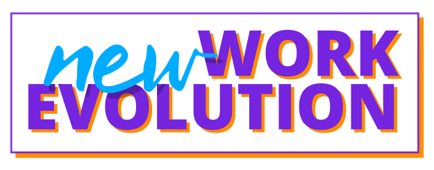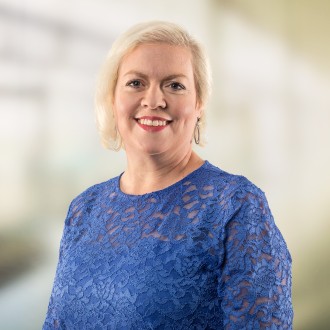"The crucial thing is to enter into a real dialogue"
What to do about Great Resignation?
The high level of employee dissatisfaction that has persisted for decades, combined with the increasing willingness to quit in the post-Corona era, is costing companies a lot of time and money. "New Work could change that," says communications and organizational consultant and author Saskia Eversloh. She is giving the keynote in the "New Work Stories" thematic block and revealed to us in an interview what she understands by "New Work" and what is particularly important.
NWE: Why is it essential for companies today to open up to New Work?
Saskia Eversloh: The most urgent reason at the moment, apart from demographic change and the international war for talent, is the increasing number of voluntary redundancies, the key words being "big quit" and "great resignation," to use the New Work wording. So it's not just a question of attracting new employees, but above all of retaining existing employees in the company. One third of specialists and managers change jobs after just two years and take their knowledge with them; this applies in particular to younger academics.
Incidentally, the costs of fluctuation, sick leave and internal resignation have been enormously high for 20 years, but are currently reaching a new high (see info box) - and this despite the fact that a lot has been invested in New Work in the meantime. Of course, this makes you wonder: What's wrong?

NWE: What do you see as the most important starting points?
Saskia Eversloh: It is crucial to enter into a real dialog! Meaningful New Work projects can only be developed by reconciling management goals and employee concerns. It is important to unleash the potential of all generations so that they can stay with the company longer and make the best possible use of their manpower - which pays off in terms of corporate success and innovation.
In the past, change processes often originated in management and were pushed through - many things did not necessarily fit the employee, but also did not fit the company. Before Corona, many people jumped on the loft office hype and agency feeling with ball pools, fruit baskets and e-bikes: What is New Work beyond office design and home office? What does it mean in terms of work, especially in terms of good work? That has to be worked out together, because it's different everywhere.
NWE: Do you remember any particular "aha" moments from your practice?
Saskia Eversloh: I don't want to get too biblical, but it's not for nothing that they say, "In the beginning was the Word"! Surprisingly, I experience again and again that the meaning of communication is not really grasped. Accordingly, it is then exactly the decisive point where things are usually not right between management and employees.
It's actually quite simple to simply ask: What do employees need in order to do their work well and with pleasure - and thus ultimately advance the company? That's why we've started our NewWorkPlaybook right there, using the 7x7 methodology to guide employees in seven steps through seven areas of action, from corporate and leadership culture to agile collaboration and autonomous working, right through to flexibility in terms of time and place and work-life balance. New Work is much more than a designer's office and a home office, if only because it is not possible for all industries and professions.
The crucial thing is not only to present New Work externally - the keywords here are employer branding - but above all to live it within the organization. Otherwise, it's the same as with sustainability and green washing - here as there, people quickly notice whether the efforts are meant seriously or are just for marketing purposes.
NWE: What challenges does New Work bring with it in practice?
Saskia Eversloh: One important point that must always be considered is the organization of work. In times of remote work and home offices, new questions arise: To what extent do teams organize themselves, what does leadership look like today? The remote share for office jobs is now consistently around 50 percent, and at more and more companies even up to 100 percent. The only pain point is that while the technological prerequisites have been created, there are usually no new rules and structures for collaboration - or, for that matter, for social cohesion, a factor that is often underestimated.
NWE: Which common myths regarding New Work do you encounter again and again?
Saskia Eversloh: It's often said that Generation Z just wants to have fun. But why does this generation want more free time and a sense of purpose? I'd like to say this: Young people do their internships while still in school, then take a shortened Abitur if necessary, and have their Bachelor's degree in their early 20s. So they start working much earlier today - and the workload, personal responsibility and information overload have never been as high as they are today, in an agile working world. That, too, is New Work.
An office job 20 years ago was very different than it is today. This is true for all generations, of course, but the labor market is changing from an employer's market to an employee's market, and younger generations have learned not only to "perform" earlier, but also to articulate and advocate for their concerns.
The shortage of skilled workers is also a myth in many areas - in quite a few industries, we have more of a trend toward the low-wage sector and relocation abroad. There is a real shortage of skilled workers only in selected areas such as healthcare and transportation - and that is a big problem, because these are areas that are relevant to society as a whole, even against the backdrop of the energy transition and demographic change. Another reason why New Work is so important.
Tip for media professionals: On Wednesday, May 24 at 9 a.m., Saskia Eversloh will be a guest at the press talk on "New Work - a brave new world of work for everyone?" together with Kay Mantzel, New Work Ambassador workingwell GmbH, Marcus Fränkle, Managing Director of Der Blaue Reiter, and Brigitte Emmerich, Head of HR Messe Karlsruhe. Information and registration with press officer Katrin Wagner


